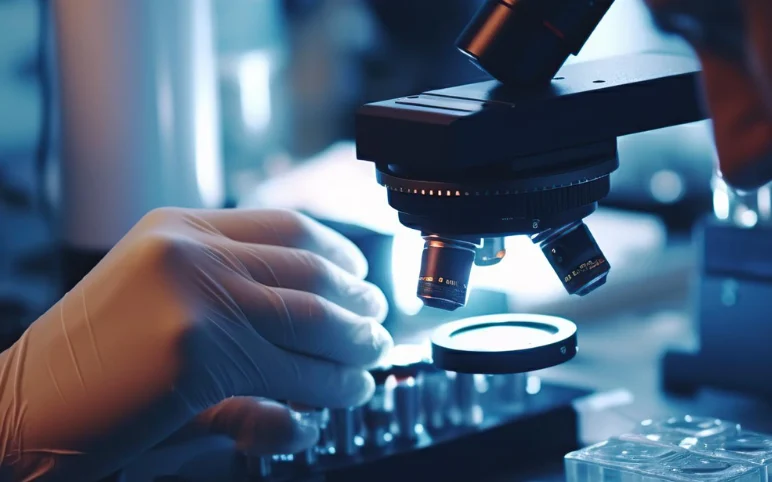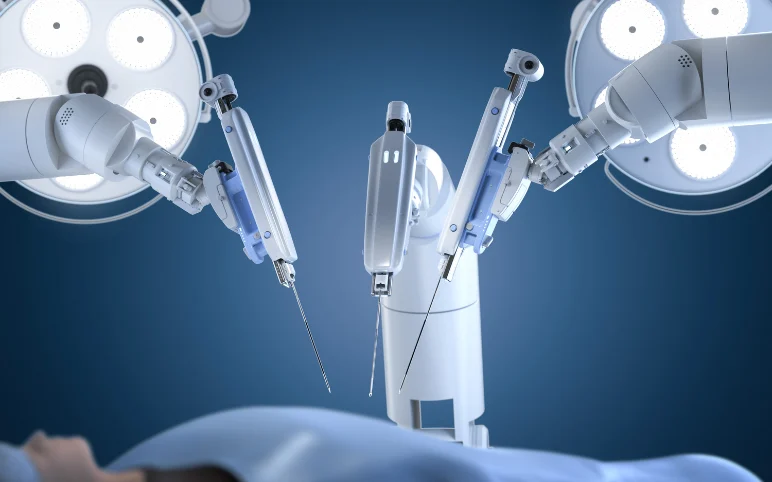Tandem Diabetes Care Launched Mobi Mini Automated Insulin Patch Pump
On February 13, 2024, announced that it started off the U.S. commercial launch of its Mobi insulin patch pump.
The San Diego-based business claims that Mobi, which is fully controllable via a smartphone app, is the world’s smallest durable automated insulin delivery (AID) device.
In July 2023, the FDA approved it for diabetics aged six and up. Tandem said that it had begun accepting orders and shipping Mobi to qualifying US customers.
Mobi has a 200-unit insulin cartridge and an on-pump button, providing an alternative to phone control for insulin boluses. It is less than half the size of Tandem’s existing pump system, the t:slim X2 pump. Mobi can be stored in a coin pocket, clipped to clothing, or worn on the body via an adhesive sleeve.
As per DelveInsight’s “Insulin Infusion Pumps Market” report, the insulin infusion pumps market was valued at USD 6.48 billion in 2022, growing at a CAGR of 8.69% during the forecast period from 2023 to 2028 to reach USD 10.68 billion by 2028. The insulin infusion pumps market is slated to witness prosperity owing to factors such as growing prevalence of diabetes, increasing sedentary lifestyle, growing aging population base which is susceptible to the development of diabetes, and the growing focus on improving the safety and usability of insulin infusion pumps are further expected to result in the appreciable revenue growth in the insulin infusion pumps market during the forecast period.
FDA cleared the First Over-The-Counter fingertip pulse oximeter from Masimo
On February 13, 2024, Masimo announced that it received FDA clearance for its MightySat Medical over-the-counter fingertip pulse oximeter.
MightySat Medical claims that with the regulatory approval, it will be the first and only FDA-cleared medical fingertip pulse oximeter sold over the counter (OTC) to customers without a prescription.
Masimo, founded in Irvine, California, uses SET technology to power its OTC pulse oximeter. Hospitals and clinics all throughout the world use the SET technology. Just last week, the business announced that its SET pulse oximetry technology works consistently across a wide range of skin pigmentations.
Masimo stated that MightySat Medical provides accurate and dependable oxygen saturation (SpO2) and pulse rate (PR) measurements on patients of all skin colors and low perfusion.
The FDA approved the gadget for spot checks of functional SpO2 and pulse rate. Clearance applies to anyone aged 18 and over who are well or badly perfused under no-motion conditions. It is not intended for the diagnosis or screening of lung diseases. Consumers with breathing problems or lung disorders can now utilize them to get a reliable reading of their arterial blood oxygen saturation.
“Until now, consumers and even healthcare providers had no way of knowing what pulse oximeter they could trust to use at home. On the internet and even in drug stores, they are inundated with a myriad of products that are unreliable, with misleading advertisements about their abilities to provide accurate measurements of oxygen saturation and pulse rate,” said Joe Kiani, founder and CEO of Masimo. “This clearance of MightySat Medical for consumers eliminates the confusion, placing an FDA-cleared, accurate, reliable, and revolutionary SET pulse oximeter, with technology that hospitals have been using for more than 25 years, directly into their hands. Healthcare providers can also now be confident when referring their patients to get MightySat Medical knowing that it has actually been cleared by the FDA as an OTC medical pulse oximeter.”
According to DelveInsight’s “Pulse Oximeters Market” report, the pulse oximeters market was valued at USD 2.16 billion in 2022, growing at a CAGR of 10.73% during the forecast period from 2023 to 2028, to reach USD 3.98 billion by 2028. The demand for Pulse Oximeters is primarily attributed to the sudden outbreak of the COVID-19 pandemic, the rising prevalence of various respiratory disorders coupled with the growing geriatric population, technological advancement, and the availability of new products.
UroMems Recorded Positive Results For First-ever Female Implant of Smart Urinary Sphincter System
On February 14, 2024, UroMems announced that it successfully met the six-month primary endpoint for the first female patient implanted with UroActive.
Grenoble, France-based UroMems developed the smart UroActive implant to treat stress urine incontinence (SUI). The business claims it is the first smart, automated artificial urinary sphincter (AUS) to cure SUI.
UroActive, which is powered by a MyoElectroMechanical system (MEMS), is inserted into men’s urethral ducts and female bladder necks. It is regulated by the patient’s activity, eliminating the need for manual modifications. This provides patients with greater ease of use and a higher quality of life than superior options. The company has previously reported positive early feasibility evidence in a study of six men, but this is the first female implant.
UroMems stated that the milestone marks “a new era” for women suffering from SUI. It could also mark a shift for surgeons treating SUI, not just in France (where the female patient received the implant), but throughout Europe and the United States.
The major outcome measures were successful device activation and the frequency of explants and modifications at six months. According to UroMems, the first female patient not only achieved the primary endpoint of remaining revision-free, but also experienced recovered social continence. The corporation cites “extremely positive” follow-up on secondary metrics, such as leak rate data.
“We are elated to reach this critical achievement contributing to the demonstration of the feasibility of the UroActive System to successfully treat women suffering from debilitating SUI,” said Hamid Lamraoui, UroMems CEO and co-founder. “The compelling results of this first-in-female implant show the high potential of our technology, bringing us one step closer to delivering on the massive unmet need for women and physicians desperately seeking a better SUI treatment option.”
According to DelveInsight’s “Stress Urinary Incontinence Devices Market” report, the stress urinary incontinence devices market was valued at USD 757 million in 2022, growing at a CAGR of 6.91% during the forecast period from 2023 to 2028 to reach USD 1130.32 Million by 2028. The stress urinary incontinence devices market is witnessing positive growth owing to the rising prevalence of urinary incontinence cases among women, a surge in the aging population prone to stress urinary incontinence and weakening of the pelvic floor, the development of innovative devices, physical problems caused due to conditions including pregnancy, diabetes, menopause, pushes the demand of these devices, thereby contributing to the growth of the stress urinary incontinence market during the forecast period from 2023-2028.
ResMed Launched New Bilevel Sleep Respiratory Devices
On February 12, 2024, San Diego-based ResMed announced that it launched its AirCurve 11 series bilevel positive airway pressure devices in the US.
The AirCurve 11 series is the newest line of bilevel devices from ResMed that employs two degrees of support. They employ both expiratory and inspiratory positive airway pressure (EPAP and IPAP).
AirCurve 11 was created to assist clinicians in treating sleep apnea while patients begin and continue therapy when combined with digital technologies. To resolve the difficulties some patients encounter when adjusting to continuous positive airway pressure (CPAP) therapy, ResMed developed the AirCurve 11 device line on its industry-leading AirSense 11 platform.
AirCurve 11 VAuto was created by the firm to increase compliance and comfort. It offers a greater pressure when inhaled and a decreased pressure when exhaled. According to the manufacturer, this enables the device to better match the patient’s breathing pattern.
The company’s latest adaptive servo-ventilation (ASV) device, the AirCurve 11 ASV, seeks to replicate the patient’s natural breathing process during therapy. It has an algorithm that records 50 times per second, or 13 points on each breath cycle. To stabilize ventilation, the system makes use of the individual minute ventilation target and respiratory rate for every patient. The algorithm of triggers, cycles, and inspiration duration is informed by ongoing monitoring.
“Our approach to product development is predicated on always doing what is in the best interest of patients,” said ResMed Chief Product Officer Justin Leong. Justin added, “This culture of customer-centricity fuels our passion for delivering products like the AirCurve 11 that empower people with the ability to better care for their sleep apnea from the comfort of their own homes.”
Other new features for the ResMed AirCurve 11 platform:
Integrated cellular communication, which permits safe and automated data transmission to the cloud for access via ResMed’s data tracking apps, AirView and myAir, is one of the features the business introduced to its new respiratory system.
The climate control feature on AirCurve 11 also allows users to automatically regulate the unit’s built-in heated humidifier. This functionality can also be manually set by them.
According to ResMed, over-the-air updates bring new digital features and software straight to the device. For these bilevel patients, the MyAir patient engagement app provides a daily sleep score along with support. With its remote monitoring and administration features, AirView makes it possible to provide an educated pathway to care.
ResMed’s Personal Therapy Assistant is available through myAir and comes with videos and interactive voice-guided setup instructions. Patients are periodically prompted with questions about bilevel therapy goals by the company’s Care Check-In tool.
“Patient care is our top priority, and that includes their comfort and compliance with PAP therapy,” commented ResMed Chief Medical Officer Dr. Carlos M. Nunez. Dr. Carlos said, “We’ve seen patient compliance improve from 70% to 87%2 through the use of coaching features and the ability to track and view their nightly sleep data via myAir and AirView, so we’ve incorporated these digital health applications into the new AirCurve 11 series to enable maximum comfort and support throughout the therapy experience.”
According to DelveInsight’s “Sleep Apnea Devices Market” report, the sleep apnea devices market valued at USD 7.53 billion in 2022, growing at a CAGR of 6.26% during the forecast period from 2023 to 2028 to reach USD 10.82 billion by 2028. The demand for sleep apnea devices is primarily being boosted due to the increasing cases of sleep apnea, and the rising population with obesity. Further, the rising adoption of advanced and innovative technologies, the rising awareness about sleep apnea devices, the increasing geriatric population, and the increasing product launches and approval among others, thereby contribute to the overall growth of the sleep apnea devices market during the forecast period from 2022-2028.
FDA Cleared Viz.Ai Algorithm for Quantifying Intracerebral Hemorrhage
On February 9, 2024, Viz.ai announced that it received the US FDA 510(k) clearance for its Viz ICH Plus algorithm for providing volume measurements of brain bleeds.
Viz ICH Plus automates the process of locating, annotating, and measuring the volume of segmentable brain areas on non-contrast computed tomography (NCCT) images.
These criteria, which the organization uses to assess intracranial hyperdensities, lateral ventricles, and midline shifts, help to make fast and knowledgeable decisions about the management of brain bleeds.
Viz.ai, a San Francisco-based company, has created an algorithm that can quantify intracerebral hemorrhages, which make for much to 15% of all strokes and are linked to high rates of morbidity and mortality.
Accurate brain bleed measurements and quick response times are necessary for evaluating the severity of instances and tracking their development.
Radiologists, neurologists, and neurosurgeons can quickly automate the labor-intensive process of measuring brain bleeds by integrating Viz ICH Plus into their workflow. Viz.ai offers its ICH Plus software on its Viz.ai One enterprise platform solution.
“At Viz.ai, our mission is rooted in advancing healthcare through innovation. Viz ICH Plus exemplifies our dedication to enhancing patient care by leveraging technology,” said Jayme Strauss, chief clinical officer at Viz.ai. Jayme added, “We are excited to introduce a product that bridges the gap between AI capabilities and improved patient outcomes.”
According to DelveInsight’s “Intracranial Haemorrhage Devices Market” report, the intracranial hemorrhage devices market was valued at USD 1.59 Billion in 2022, growing at a CAGR of 6.65% during the forecast period from 2023 to 2028 to reach USD 2.35 Billion by 2028. The increase in demand for intracranial haemorrhage devices is primarily attributed to the rising cases of brain disorders such as Stroke, Cerebral/Brain Aneurysm, the growing burden of the old age population suffering from brain disorders, shifting focus towards the development of technologically advanced ICH Devices, thereby contributing to the growth of the intracranial haemorrhage (ICH) devices market during the forecast period from 2023-2028.
Canary Medical Announced the First-In-Human Implant of a Heart Sound Monitor
On February 12, 2024, Vancouver, British Columbia–based Canary Medical announced that it completed the first-in-human limited feasibility trial of its cardiac auscultation monitoring device.
Canary is creating the device as an innovative implanted sensor. It offers daily objective heart parameter monitoring as an adjuvant. The business thinks it might help doctors and patients better control the symptoms of congestive heart failure.
Paraguay was the location of Canary Medical’s feasibility testing. According to the business, this is the first successful human cardiac auscultation sensor implantation. The purpose of the first-in-human study was to determine the microphone system’s final design requirements, sensitivity, and specificity.
The trial, which included two people, was successfully concluded, according to the business. The sensor’s output revealed audible mitral regurgitation sounds in contrast to the typical acoustic heart signals.
“Canary Medical announced the first step in expanding our sensor technology applications outside of orthopedics. The cardiac auscultation monitor is just one of the exciting new products that will drive the future growth of our company,” said Dr. Bill Hunter, founding member and CEO of Canary Medical. Dr. Bill commented further, “Congratulations to our world-class research and development team, and thank you to the individuals who were the first to receive this new technology. While these are early results, we believe that the future is bright for patients who will benefit from Canary’s expanded sensor portfolio in the years to come.”
According to DelveInsight’s “Cardiac Monitoring Devices Market” report, the cardiac monitoring devices market will grow at a CAGR of 5.4% during the forecast period from 2023 to 2028. The demand for cardiac monitoring devices is primarily being boosted by the rising prevalence of cardiovascular diseases, technological advancements in product development, increasing geriatric population, sedentary lifestyle, and increasing awareness programs regarding cardiovascular health.



